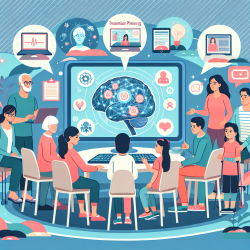As practitioners in the field of audiology, continuous learning and professional development are crucial for enhancing our skills and improving patient outcomes. The research article titled Audiology and Auditory Dysfunction (1997) offers valuable insights into hearing disorders and provides a comprehensive framework for both novice and advanced students in audiology. This blog post aims to highlight key takeaways from the research and encourage further exploration to improve your practice.
Understanding the Basics
The initial chapters of the research delve into the anatomy and physiology of the ear, acoustics, psychoacoustics, and basic audiometric testing. Although these sections are written in understandable terms, they remind us of the importance of solidifying our foundation in these areas. For practitioners, revisiting these fundamental concepts can enhance your diagnostic capabilities and refine your approach to patient care.
Advanced Audiometric Testing and Medical Conditions
The strength of the research lies in its journey through the ear to the brain stem, reviewing various medical conditions and their impact on hearing. For audiologists, understanding the nuances of acquired disorders, otitis media, and bony abnormalities of the middle ear, among others, is crucial. This comprehensive review serves as a reminder to consider the medical conditions that affect ears and hearing in our diagnostic processes.
Practical Application and Humanistic Approach
One of the most compelling aspects of the research is its practical application and humanistic approach to managing hearing loss in children and adults. The detailed decision tree diagram for managing hearing loss and the discussion on FM systems and cochlear implants provide a blueprint for treatment planning. Moreover, the emphasis on treating the patient, not just the disorder, aligns with the compassionate care that is central to our practice.
Encouraging Further Research and Development
The research article not only serves as an educational resource but also as a catalyst for further research and development in the field of audiology. As we strive to become more outcome-oriented, having a scientific background on which to base our procedures is indispensable. This research compels us to explore new intervention strategies and to continue our education to better serve our patients.
Conclusion
Incorporating the insights from Audiology and Auditory Dysfunction into your practice can significantly enhance your understanding of hearing disorders and improve your approach to patient care. By revisiting fundamental concepts, exploring advanced topics, and adopting a humanistic approach, you can elevate your practice and contribute to the advancement of the field. I encourage all practitioners to delve into this research and consider how its findings can be applied in your daily work.
To read the original research paper, please follow this link: Audiology and Auditory Dysfunction (1997).










